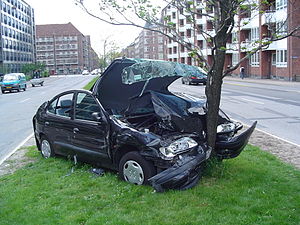 |
1) Improve Your Credit Score Research has shown that drivers who are not responsible with their money are often not responsible behind the wheel. In addition, drivers who have bad credit have a financial incentive to file fraudulent or shady claims in the hopes of getting a quick paycheck. If you have a questionable credit score, start taking steps to improve it as soon as possible.
2) Reduce The Amount Of Coverage You Have Your car insurance premium will drop if you reduce the amount and types of coverage that you have. For instance, you may not need collision or comprehensive insurance on a car that is more than a few years old or that you are no longer making payments on. By reducing your bodily injury coverage levels, you can see a significant savings each year.
3) Increase Your Deductible A deductible is the amount of money that you have to pay before your insurance policy kicks in. If you have a low deductible, you will have a higher premium. By increasing your deductible, you are taking on more of the risk if you get into an accident. Therefore, your premium will drop as a result. Policyholders should know that there is a separate deductible for damage to glass and damage to the body of your car. Typically, increasing the deductible for body damage lowers your premium more than increasing the deductible for glass damage.
4) Add Security Features To Your Car Adding security features to your car makes it less likely that someone will damage or steal your car. This reduces the risk of a policyholder filing a claim for lost or stolen property. In the event that your car is stolen and not recovered, your insurance company will give you a check equal to the current value of the car. Cars that have anti-lock brakes or airbags reduce the risk that you will get into an accident or suffer severe injuries in an accident.
5) Pay In Full Every Six Months The easiest way to lower your insurance premium is to pay in full every six months. When you pay in monthly installments, you are paying convenience fees as well as any fees to process a payment by phone or credit card. Paying your premium every six months as opposed to every month can save you up to 10 percent over the course of a year. Saving money on auto insurance doesn't have to be difficult. By improving your driver profile, adding security features to your car and paying in semi-annual installments, you can save a lot of money on something that you hope that you never have to use.
(Photo credit: Alan Cleaver)

